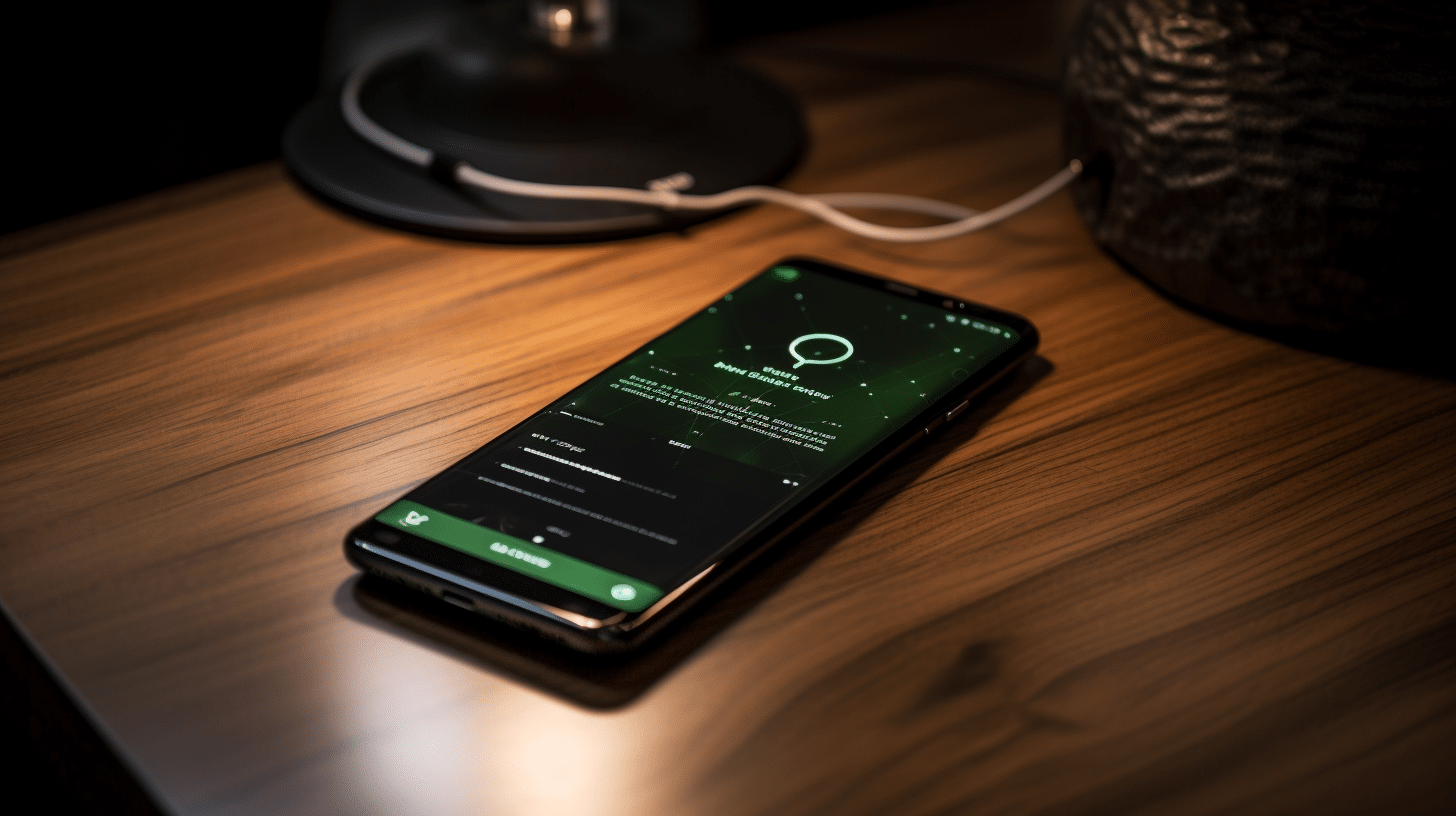Virtual Private Networks (VPNs) have become increasingly popular among Android users due to their ability to enhance online privacy, bolster security, and enable access to geographically-restricted content. A VPN is a service that encrypts your data and routes it through a secure server, protecting your online traffic from hackers, intruders, and even your own internet service provider. As Android smartphones and tablets continue to dominate global mobile market shares, understanding how VPNs work on Android devices is essential for individuals who want to safeguard their digital footprint.
When choosing a VPN for Android, users need to weigh up factors such as performance, ease of use, and most importantly, security features. VPNs for Android come in various forms, including dedicated apps and built-in Android VPN settings. It’s crucial to select a reliable and trustworthy VPN provider, as this will not only ensure optimal privacy protection but also cater to other specific needs like streaming content, bypassing censorship, and safeguarding sensitive information transmitted on public Wi-Fi networks.
Key Takeaways
- VPNs on Android devices offer enhanced privacy, security, and unrestricted access to geo-blocked content.
- Choosing the right VPN involves finding a trusted provider offering speed, ease of use, and robust security features.
- VPNs can be set up through dedicated apps or built-in Android settings, with different VPNs catering to specific user requirements.
Understanding VPN on Android
Virtual Private Network
A Virtual Private Network (VPN) is a technology that establishes a secure connection between your Android device and a remote server over the internet. This secure connection enables you to browse the web privately and securely, as your data is encrypted and your IP address is masked. A VPN on Android provides you with an additional layer of security when browsing the internet, accessing public Wi-Fi networks, or bypassing geographical restrictions.
When you use a VPN on your Android device, your internet traffic is routed through a secure tunnel to the VPN server. This helps to maintain your privacy and protect your data from being intercepted or accessed by third parties.
Encryption and Security
VPNs on Android enable an essential security feature known as encryption. Encryption is the process of converting readable data (plaintext) into an unreadable format (ciphertext) that cannot be easily understood or decrypted without the proper key.
There are various encryption algorithms used by different VPN services, such as AES (Advanced Encryption Standard) and ChaCha20. The choice of encryption algorithm can impact the speed and security of your connection. A strong encryption method helps to protect your online activities from hackers, government surveillance, and other potential threats.
Security protocols also play a crucial role in ensuring the safety of your data while using a VPN on Android. Some common protocols include OpenVPN, IKEv2, and WireGuard. These protocols determine how the data is transmitted securely between your device and the VPN server, ensuring that your data remains confidential and unaltered during transit.
Using a VPN on Android can help safeguard your personal information and enhance your overall online experience. By encrypting your data and utilizing secure communication protocols, you can confidently browse the internet from your device without worrying about potential security risks.
Choosing the Best VPN for Android
When it comes to selecting the best VPN for your Android device, there are several factors to consider to ensure reliable performance, robust security and user-friendly features. Here are the top VPN services available in the market:
Top VPN Services
- NordVPN: NordVPN is a popular choice due to its high-speed performance, vast server network, and top-notch security features. With a strict no-logs policy and military-grade encryption, NordVPN provides exceptional privacy to its users. The dedicated Android app is easy to use and packed with advanced settings.
- ExpressVPN: Known for its lightning-fast speeds and stable connections, ExpressVPN offers a user-friendly Android app and strong security features. Its global server network spans over 90 countries, allowing users to unblock content easily. This VPN service also maintains a strict no-logs policy and uses industry-standard encryption protocols.
- Surfshark: Surfshark delivers a balanced mix of speed, security, and affordability. The Android app is intuitive and offers a “Whitelister” feature to exclude specific apps from being routed through the VPN. With the ability to connect unlimited devices under a single account, Surfshark caters to households with multiple Android devices.
- ProtonVPN: Developed by the team behind ProtonMail, ProtonVPN is a privacy-focused service boasting a no-logs policy and strong encryption. Its Android app is open-source and user-friendly. While the free version has limited features, the paid plans offer access to more servers and advanced security options like Secure Core.
- Private Internet Access: PIA offers a user-friendly Android app with various customizable settings to optimize performance and security. The extensive server network and commitment to user privacy make it a reliable choice for Android users. PIA also supports multiple simultaneous connections.
- CyberGhost: CyberGhost is known for its beginner-friendly Android app and diverse server network. The VPN service employs strong security protocols and a strict no-logs policy. CyberGhost allows up to 7 simultaneous connections to cover all your devices under a single subscription.
- Windscribe: Windscribe has both free and premium plans that cater to different user needs. The Android app includes a firewall, ad-blocking, and split tunnelling features. While the free version is capped at 10 GB monthly data, the pro plan provides unlimited data and access to more server locations.
- Hide.me: Hide.me offers a free VPN option alongside its paid plans, all possessing strong encryption and a zero-logs policy. The Android app is user-friendly and customizable. The free version has a 10 GB monthly data cap and limited server locations, while the paid plans allow for more server access and include advanced features.
- TorGuard: TorGuard’s Android app provides high-level security, customizable settings, and a large server network. With its focus on privacy and a strict no-logs policy, TorGuard is suitable for users who prioritise security. The service offers multiple subscription plans to accommodate various user needs.
- IVPN: IVPN is a privacy-focused VPN with a no-logs policy and strong encryption standards. While the server network is smaller compared to other VPNs, IVPN provides reliable performance and a user-friendly Android app. IVPN offers two subscription tiers: Standard and Pro, with the Pro plan including extra features like port forwarding.
- Mullvad VPN: Mullvad VPN emphasizes privacy and security with its open-source Android app, strong encryption protocols, and strict no-logs policy. The VPN has a simple pricing structure that allows users to pay based on their usage. Mullvad VPN supports multiple devices and offers reliable connections despite its smaller server network.
Setting Up a VPN on Android Devices
Android VPN Configuration
To set up a VPN on your Android device, follow these steps:
- Choose a reputable VPN service: Before setting up a VPN, research and choose a reliable VPN service that is compatible with Android devices. This will ensure your privacy and security are maintained.
- Download and install the VPN app: Once you have selected a VPN service, download and install the corresponding VPN app from the Google Play Store.
- Configure the VPN app: After the installation is complete, open the VPN app. You will be prompted to enter your login credentials, which are usually your email address and password.
- Select a VPN server: Choose a VPN server from the list provided by the app. This server will be the intermediary between your Android device and the internet, allowing you to connect securely and privately. Keep in mind that the closer the server location is to your actual location, the better the connection speed will be.
- Establish a VPN connection: Once you have selected a suitable VPN server, tap the “Connect” button to establish a VPN connection. The app will encrypt your data and route it through the VPN server, ensuring your LAN and IP address remain private.
- Verify the VPN connection: After the connection is established, verify the connection by checking your IP address in the app or through an online IP address checker. This will confirm that your data is being routed through the VPN server and not leaking to the internet.
Remember to always use a professional tone when conveying information to the reader and avoid making exaggerated or false claims about the capabilities of a VPN. Setting up a VPN on an Android device is a straightforward process, and it can greatly enhance your privacy and security on the internet.
Key Factors to Consider in Android VPNs
When choosing a VPN for your Android device, there are several key factors to consider. In this section, we will discuss three important aspects: Privacy Policies, Connection Speeds, and Server Locations.
Privacy Policies
A crucial element of a good VPN service is its commitment to ensuring your privacy. This includes having a clear and transparent privacy policy, which spells out how the VPN handles your data. Look for VPNs that have a strict no-logs policy, meaning they do not store any information about your online activities. Additionally, some VPNs offer strong encryption and advanced security features to protect your data from hackers and surveillance.
Connection Speeds
Another important factor to consider when selecting a VPN for Android is the connection speed. VPNs can potentially slow down your internet connection, so it’s essential to choose one that offers fast and reliable performance. Pay attention to the VPN’s speed test results, and consider opting for ones with unlimited bandwidth to avoid throttling or restrictions on data usage.
Server Locations
The availability and location of a VPN’s server network can play a significant role in the overall user experience. A larger server network can provide more options for unblocking websites and accessing geo-restricted content. Furthermore, having servers close to your physical location can help improve connection speeds.
When evaluating Android VPNs, keep in mind the importance of privacy policies, connection speeds, and server locations. By considering these factors, you can make an informed decision and choose the best VPN to suit your needs.
Advantages and Limitations of Free VPNs on Android
Free Versus Paid VPNs
Free VPNs have become quite popular among Android users for their ease of use and affordability. However, there are some notable advantages and limitations to consider when using a free VPN service on an Android device. Comparing them to paid VPNs will give you a better understanding of what to expect.
Advantages:
- Cost Savings: The most apparent advantage of using a free VPN on Android is the cost savings. Users can access VPN services without any financial commitment, making them an attractive option for those on a budget or looking for a basic solution to secure their internet connections.
- Ease of Use: Many free VPNs on Android come with user-friendly interfaces that require minimal configuration, making them accessible to users with varying levels of technical expertise.
Limitations:
- Limited Features: Free VPNs often lack advanced features, such as customizable encryption methods and simultaneous device connections, provided by paid VPN services.
- Data Restrictions: Free VPNs frequently impose restrictions on data usage, limiting the amount of data you can transfer through the VPN. This can hinder activities such as streaming and downloading large files.
- Speed and Performance Issues: Due to the high number of users connected to free VPN services, server speeds can be slow, resulting in slow browsing, streaming, and other online activities.
- Security Concerns: Free VPNs might not provide the same level of security and privacy as paid VPNs. In some cases, free VPNs might even contain malicious extensions or adware that compromise your device’s security.
- Privacy Intrusion: Free VPN services may log and sell user data to third-party advertisers to generate revenue, compromising user privacy. Paid VPNs typically have more robust privacy policies and do not log user activities.
In conclusion, when choosing a VPN for your Android device, it’s essential to weigh the advantages and limitations of free VPNs against the benefits of paid VPN services. While free VPNs can save you money, consider investing in a paid VPN service to ensure a comprehensive online security and privacy experience.
Compatibility and Platforms
One of the benefits of using a VPN on Android is its adaptability to different hardware platforms. Several studies, like this one focusing on the performance analysis of constrained hardware open source infrastructure, have revealed that most VPN algorithms are compatible with Android devices. Additionally, Android VPN permission is integrated into many apps, enhancing platform compatibility even further.
It’s important to note that the majority of VPN providers develop Android-specific apps that are optimised for the distinct requirements of Android smartphones and tablets. This ensures a seamless and consistent user experience across devices. In some cases, researchers have worked on localising compatible hardware for trustworthy collaborations using OSS and Android-based COTS devices, further exemplifying the adaptability of VPNs in the Android ecosystem.
Given the popularity of other platforms, VPN providers also develop dedicated apps for Windows, macOS, iOS, and Linux to cater to the needs of users on these operating systems. This cross-platform support ensures users have a consistent VPN experience regardless of their device or platform preference.
Though standard routers do not natively support VPN functionality, some router models, particularly those with advanced firmware, can be configured to work with VPNs. A handful of VPN providers offer guidance and tutorials to assist users in setting up a VPN directly on their router, allowing for network-wide protection.
In summary, Android VPNs are designed to be compatible with numerous platforms and devices, including smartphones, tablets, and some routers. While specific user experiences may vary across these platforms, VPN providers work to create tailored and adaptable solutions to accommodate the diverse needs of their users, ensuring a professional and seamless experience across a myriad of devices.
Frequently Asked Questions
How does a VPN work on an Android device?
A VPN, or Virtual Private Network, works on Android devices by creating an encrypted connection between your device and a VPN server. This encrypted connection helps to secure your data, protect your privacy, and allow access to geo-restricted content. When using a VPN on an Android device, your internet traffic is routed through the VPN server, masking your IP address and encrypting the data transmitted and received.
Do I need a VPN for my Android phone?
Whether you need a VPN for your Android phone depends on your individual needs and concerns. A VPN can protect your online privacy, secure your data on public Wi-Fi networks, and provide access to geo-restricted content. If these are concerns of yours, then a VPN is definitely worth considering.
How do I set up a VPN on Android without using an app?
To set up a VPN on Android without using an app, follow these steps:
- Open the Settings app on your device.
- Navigate to “Network & internet” (or “More” on some devices) and select “VPN”.
- Tap the “+” or “Add VPN” button.
- Fill in the required fields, including the VPN server address, username, and password. These details will be provided by your VPN provider.
- Tap “Save” and then connect to the VPN by clicking on its name and entering your credentials.
Please note that a manual VPN setup may have limitations compared to using a dedicated VPN app, such as fewer server locations and features.
What are the best free VPN options for Android?
There are several free VPN options for Android available; however, keep in mind that free options may have limitations in terms of data usage, server locations, and security features. Some popular, reputable free VPN services include ProtonVPN, Windscribe, and TunnelBear. When selecting a free VPN, ensure the provider has a strong privacy policy and avoids logging your activity.
How can I enable or disable a VPN on my Android device?
To enable or disable a VPN on your Android device, follow these steps:
- Open the Settings app.
- Navigate to “Network & internet” (or “More” on some devices) and select “VPN”.
- Locate the VPN connection you want to enable or disable.
- To enable the connection, tap on its name and enter your credentials, if required.
- To disable the connection, tap the gear icon, and select “Disconnect” or “Turn off.”
Does Android offer a built-in VPN service?
Android does not offer its own built-in VPN service. However, the operating system does provide native support for VPN configuration and connections. To use a VPN on Android, you can choose to set up a manual VPN connection, as explained earlier, or download a dedicated VPN app from your VPN provider or the Google Play Store.
Conclusion
In summary, a VPN on Android offers a significant layer of security and privacy for users, allowing them to browse the internet more safely and anonymously. As mobile devices and applications become increasingly popular, the importance of using a VPN cannot be overstated. With the right configuration and expertise, Android users can leverage the power of VPN technology to secure their data and enhance the overall mobile experience.
It’s important to choose a reputable and reliable VPN service provider for your Android device. Some factors to consider include performance, ease of use, and compatibility with your specific device. The VPN should also offer rigorous encryption protocols and a strong track record of protecting user privacy.
In addition, users must understand how to properly configure and use a VPN on their Android devices. Researching online guides and tutorials will provide the necessary information and knowledge to ensure your VPN experience delivers the promised security and functionality. Ultimately, taking the time to learn about and utilise a VPN on Android can greatly enhance your online privacy and security measures.






